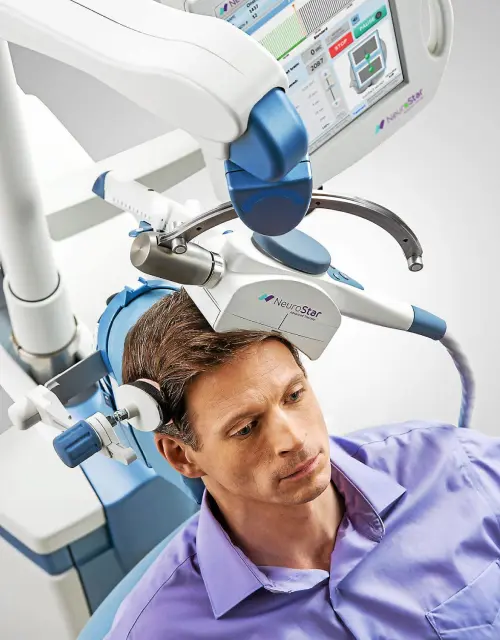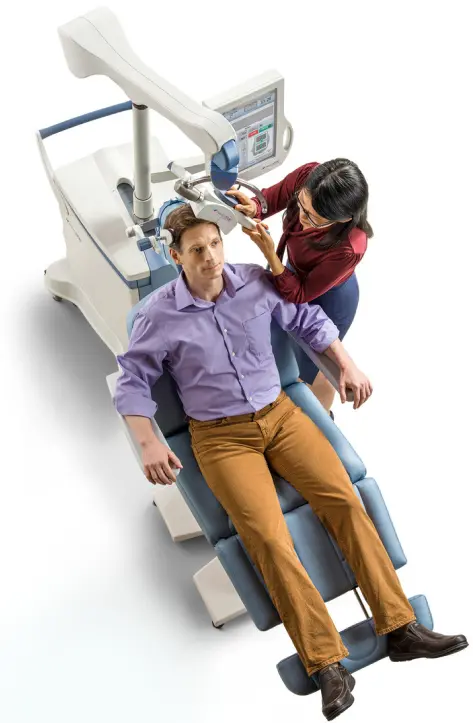This cutting edge, FDA cleared depression treatment is a non-invasive procedure that does not require sedation, drugs, and has minimal to no side-effects. By utilizing MRI-strength magnetic pulses directed at specific locations of the brain, we are able to stimulate areas known to affect mood and emotional regulation.
As a regional leader in successfully treating patients, the Premier TMS Centers of Los Angeles, headed by Dr. John Deirmenjian, provide excellent and compassionate care. Over the course of treatment, we aim to stimulate the brain in a way that can lead to improvements in mood, energy, productivity, and overall happiness. Utilizing an FDA cleared, out-patient procedure, we accept patients at any one of our three convenient locations in Beverly Hills, Glendale, and Long Beach.




















